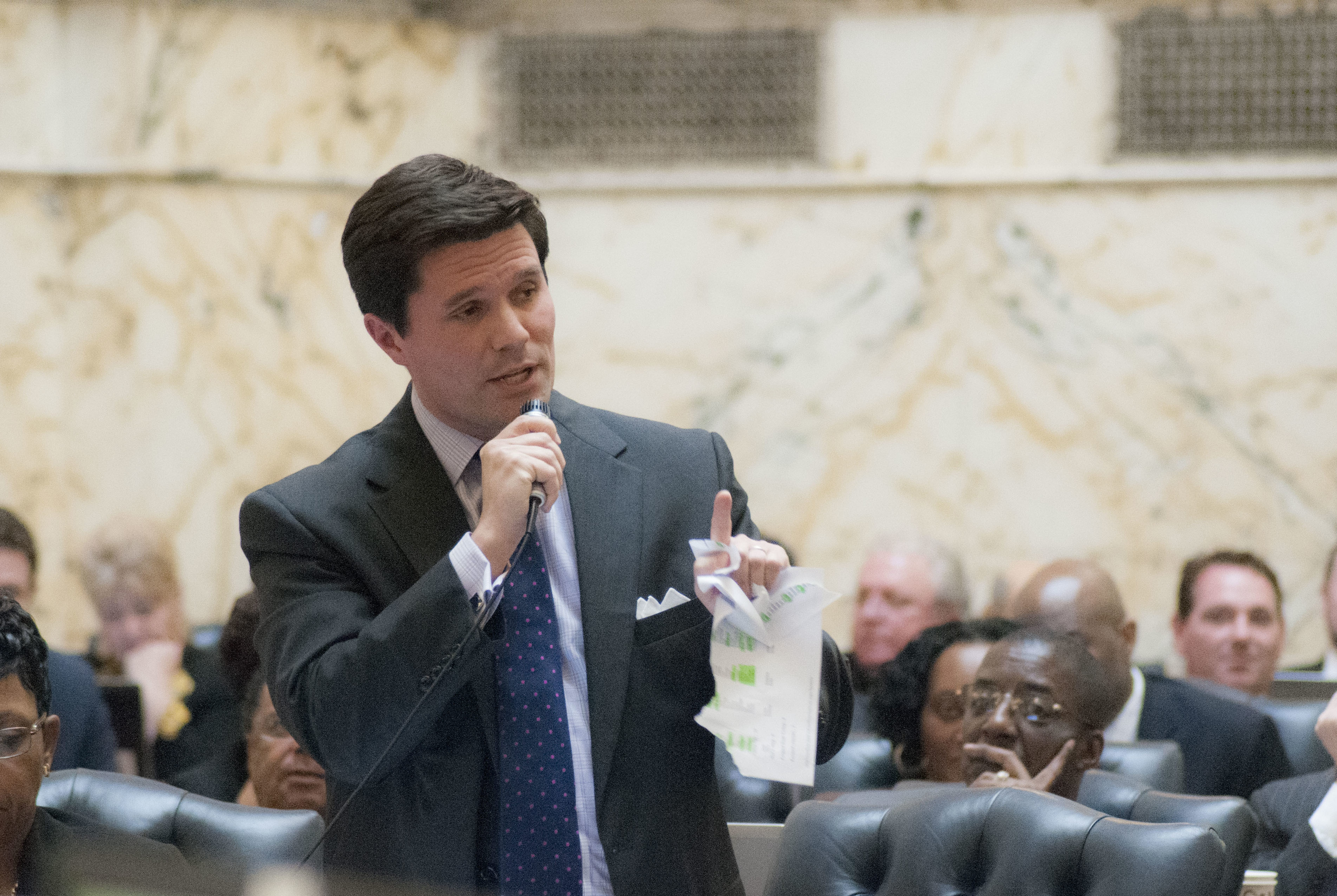By Daniel Menefee
For MarylandReporter.com
A late attempt to introduce an Internet privacy bill on Monday illustrated a common complaint from the Republican minority this session: Democrats continue to make Washington politics their priority.
House Majority Leader Bill Frick asked the House of Delegates to allow introduction of an emergency bill to prevent Internet service providers from selling or sharing personal information without notification and consent of their customers.
Frick’s eleventh hour pitch on the House floor was an attempt to replace an Obama-era FCC rule that was repealed by the Republican controlled Congress last week.
President Donald Trump said he would sign the measure, which also prohibits the FCC from issuing similar rules in the future.
“This bill is late because the issue just materialized last week,” Frick, D-Montgomery, told the House. “This may be the most fundamental privacy issue facing the United States for years.”
“I would not ask to introduce a significant bill this late in the session if it were not incredibly important.”
The FCC rule issued in October had yet to go into effect but would have required ISPs to notify and get explicit permission from Internet customers to share or sell personal data, like browsing history, geographical location, app preferences and financial information.
“The issue is whether Internet service providers will be allowed to sell your personal information, including where you go on the Internet,” he said.
Frick’s late introduction failed to get the 94 votes needed to introduce the bill with less than 35 days remaining in the session. A motion to introduce the bill failed 45-90 along party lines. There are 91 Democrats in the House and Del. Curt Anderson, D-Baltimore City, said his vote failed to register.
Needed some GOP votes
“We still needed Republican votes [to introduce the bill],” Frick said. “It doesn’t have to be a partisan issue.”
Maryland is the third state in the last week — following Illinois and Minnesota — to challenge the recent action by Congress with legislation to protect Internet privacy.
Giant ISPs like Comcast Corp, AT&T and Verizon objected to the rule because it gave a competitive advantage to large content providers like Yahoo, Google and Facebook, which are already in the business of data collection.
“I think this is a shameful vote not to even try to have a conversation about protecting our privacy.” Frick said after the House adjourned. “This is the biggest privacy issue of the year, maybe the biggest privacy issue of the decade and the Republican say maybe we’ll get to it next year.”
House Minority Whip Kathy Szeliga said while Internet privacy was an important issue, Frick’s bill wouldn’t properly address it.
“[There] is one week left in the session,” Szeliga said. “With an issue this important and this weighty there is no way it would get the hearing that it needs…let’s deal with this next year in a full, fair and concise manner.”
Doesn’t deal with Google, Yahoo, Facebook
Del. Herb McMillan, R-Anne Arundel, argued that the bill was limited to ISP’s and not the big content providers like Yahoo and Google.
“If you want to take care of privacy issues, let’s take care of all the privacy issues and not just some of them,” McMillan said. He likened the bill to “picking winner and losers.”
Frick said after floor debate that there was some hope on the Senate side that a bill could be introduced and cross the hall to the House before the end of session.
House Minority Leader Nic Kipke said the bill was just another attempt by Democrats to bring national politics into the General Assembly.
“We see this as [one in a] series of bills that have been introduced this year that’s intended to drag us into the Congress of the United States,” Kipke said. “This was our opportunity to say no and we had the votes to sustain it.”
Kipke, R-Anne Arundel, echoed McMillan and said the bill would not fix the issue of privacy across the Internet. He said Internet users were exposed to privacy risks using Google and Yahoo and that the solution was in Washington.
“Let’s have a comprehensive look at this issue, preferably in Washington, D.C.,” Kipke said.




Recent Comments